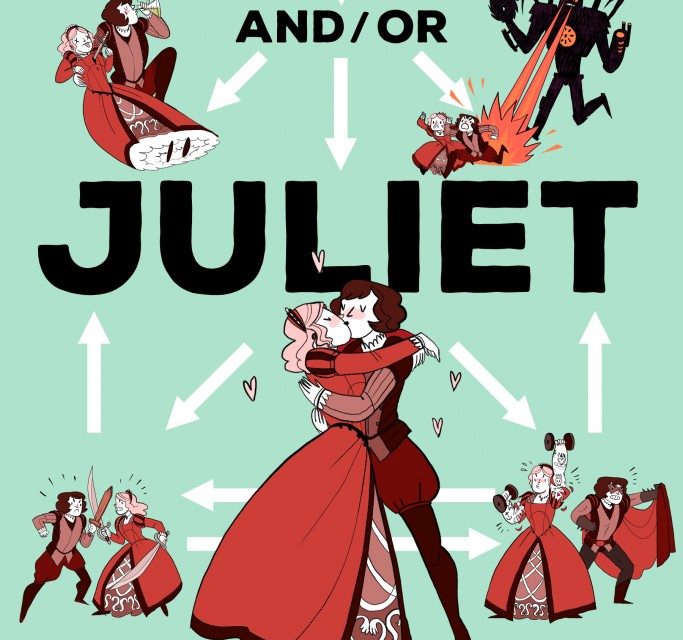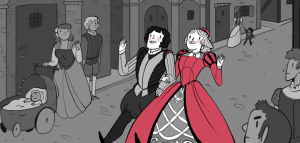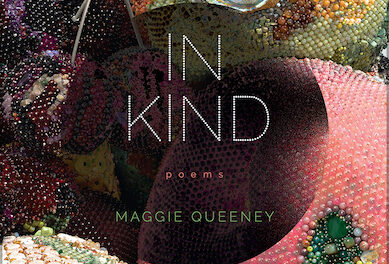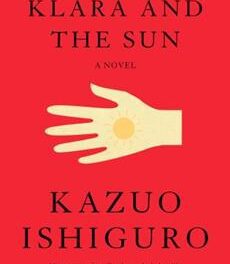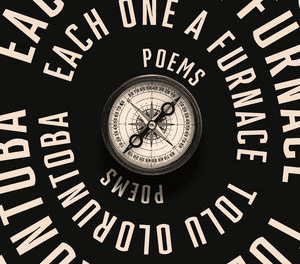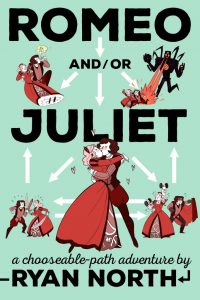 This latest “What We’re Reading” post comes from volunteer Hannah Haney, a first-year masters student in Literary and Cultural Studies here at UC. When not reading through submissions and making insightful comments, Hannah likes to read good books, eat good food, and write bad poetry. She is also the Managing Editor of Relief Journal. We’re glad to have her on board!
This latest “What We’re Reading” post comes from volunteer Hannah Haney, a first-year masters student in Literary and Cultural Studies here at UC. When not reading through submissions and making insightful comments, Hannah likes to read good books, eat good food, and write bad poetry. She is also the Managing Editor of Relief Journal. We’re glad to have her on board!
Hannah Haney: I have read Romeo and Juliet so many times, I can practically recite it. I’ve seen every adaption and for a long time thought literally nothing could make this play more exciting.
And then Ryan North came along.
Romeo and/or Juliet (Riverhead Books, 2016) takes the classic love story and makes into a Choose-Your-Own Adventure Gamebook. Readers choose whether to play as Romeo or Juliet, each of which has advantages and disadvantages. Juliet, for example, has a “+2 perk” because of her muscles (oh yeah, Juliet is totally ripped and three of her top six interests include muscles), but a -2 weakness for hot boys. Romeo has +1 perk for his excellent elocution, but a -1 weakness in the moderation and foresight categories.
Once you have weighed such options, the adventure begins! As you progress through the book, choices that would take you on the traditional narrative path are marked with a heart icon, so you can clearly choose to make a decision completely opposite of what Shakespeare had in mind.
Here’s an example to illustrate, from section 144:
“You hang out on your balcony for a bit, thinking about Romeo. He’s so great! He’s hot, and … well, that’s all you know about him for sure.
But.
But PROBABLY he’s really nice and smart and great to talk to, and intuitive, and understanding, and considerate. PROBABLY he’ll make sure to communicate with you every day, even if it’s just a quick note to say he loves you. PROBABLY his favorite food is a nice fillet of salmon for two by candlelight, and he loves horses, and even thought he won’t admit it to his guy friends he’s got this secret soft spot he only shares with you for romantic comedies, and every year on your birthday just the two of you will go to see your favorite play, 10 Things I Hate About Thou.
You sigh happily. “Romeo’s so great,” you say.
Well, that was fun but it’s getting late! Time for bed. Turn to 106
Keep puttering around the balcony for a bit longer. Turn to 159″
If the reader decides to turn to 106, the story ends with Juliet waking up, talking to her parents about Romeo, listening to her parents talk about sex, deciding to stop seeing Romeo so her parents stop talking about sex, having a one-night stand with a knight named Percy, getting pregnant and living as a single mother. Choosing page 159 forces you to decide between talking to yourself about Romeo in fancy or “regular human” language.
This version of the play results in over 100 different endings, each one illustrated by one of several different illustrators. There are 476 sections in the book, including side quests, bonus characters you can unlock as you read, and synopses of other Shakespeare plays.
What makes North’s adaptation so refreshing is that Romeo and Juliet don’t have to die in the end! I’ve seen their story played out over and over and over again, but this time, I get to choose the ending I want. No more tragic death for the two lovers. Or maybe everyone dies. Or maybe Juliet ditches Romeo all together and does her own thing. The reader gets to decide who makes it and who doesn’t. The format is highly-addictive—I want to spend hours playing through every possible outcome.

